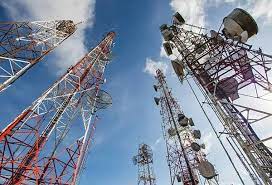Once known for its remoteness and digital isolation, Wagalla village—just 15km from Wajir town—is now at the forefront of Kenya’s digital revolution, thanks to the installation of free public Wi-Fi under a national government initiative.
The programme, part of Kenya’s broader plan to bridge the digital divide, is targeting underserved regions by rolling out Wi-Fi hotspots and digital hubs to boost connectivity, education, innovation, and service delivery.
In a region where patchy, unreliable internet has long hindered access to opportunities, the change is palpable.
Leading the celebrations was Senior Chief Ali Mohamed, who hailed the milestone as a game-changer for the wider Northeastern region.
“With access to free internet, our young people can finally apply for online jobs or start creating content to earn a living,” he said. “It will also improve security in the region, as residents can now contact law enforcement officers without worrying about airtime costs.”
He noted that digital access is also opening new doors for pastoralist families, who can now use e-payment platforms and access vital government services through the eCitizen app—tools previously out of reach for most.
“When word first spread that Wagalla had been selected as one of the pilot villages in the country, many thought it was just a rumour,” he recalled. “But everything changed when officials from the ICT ministry arrived and kicked off the process. We are truly grateful.”
Residents are already feeling the financial impact.
Halima Bishar, chairperson of the Wagalla Rangeland Management Committee, said families are saving thousands of shillings per month.
“I used to spend Sh100 a day on data—that’s Sh3,000 a month,” she said. “In a household of ten, we’re now saving up to Sh30,000. That money can go to food, school, or even investment.”
For youth like Ismail Hassan, the free Wi-Fi has unlocked an entirely new world of possibilities.
“This is our chance to change our lives. Whether it’s for learning, freelancing or launching digital startups, the free internet is here to empower us,” he said, urging others to take advantage of the opportunity.
The project is being implemented in partnership with Liquid Intelligent Technologies Kenya, as part of the government’s ambitious plan to install 25,000 Wi-Fi hotspots and 1,450 digital hubs by 2027. Each hub will offer digital training, tech services, and internet access—bringing connectivity to the doorstep of remote communities.
Kenya is now one of only three African countries actively rolling out free internet in rural areas. Since 2013, internet infrastructure has been a catalyst for economic growth. The ICT Authority of Kenya estimates that business process outsourcing alone is generating more than 1,000 new jobs monthly.
Chief Mohamed believes the transformation goes beyond technology.
“This investment is more than just cables and signals. It’s a doorway to the world—a chance for Wagalla to connect, grow, and thrive in the digital age.”

